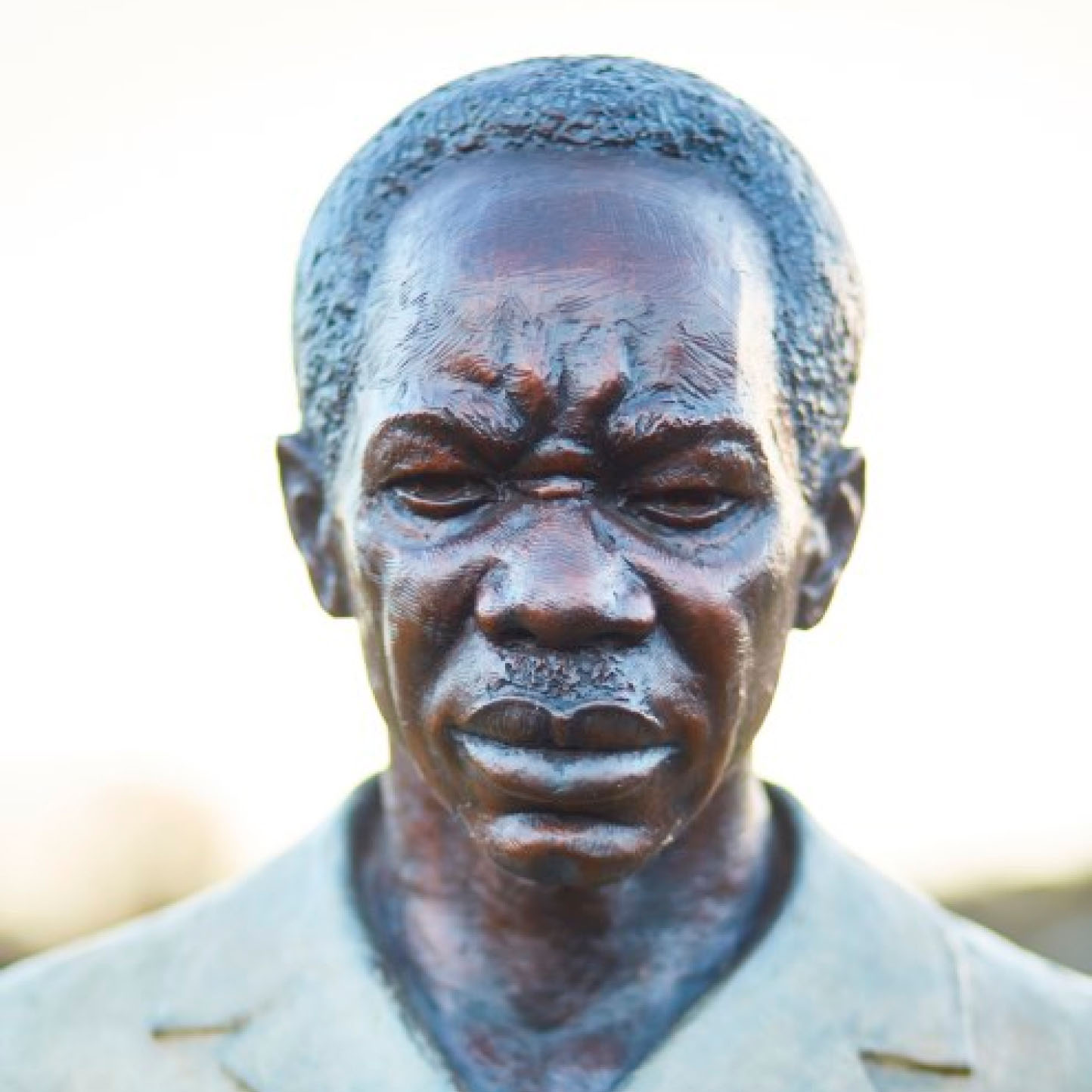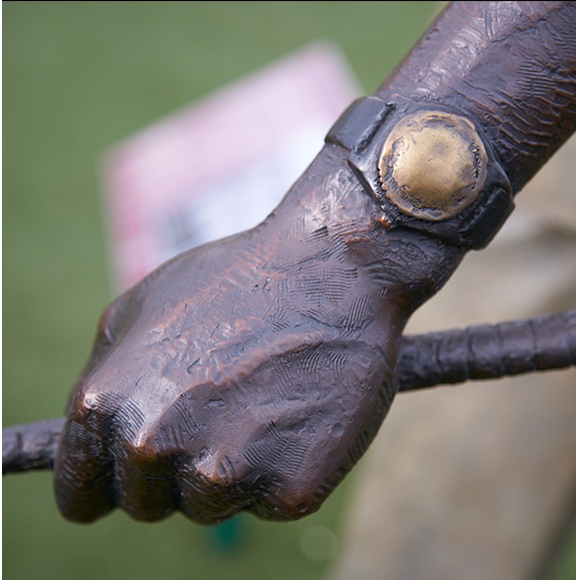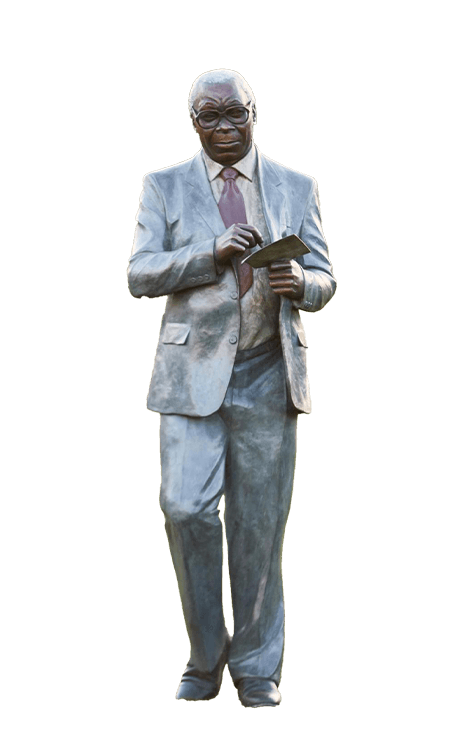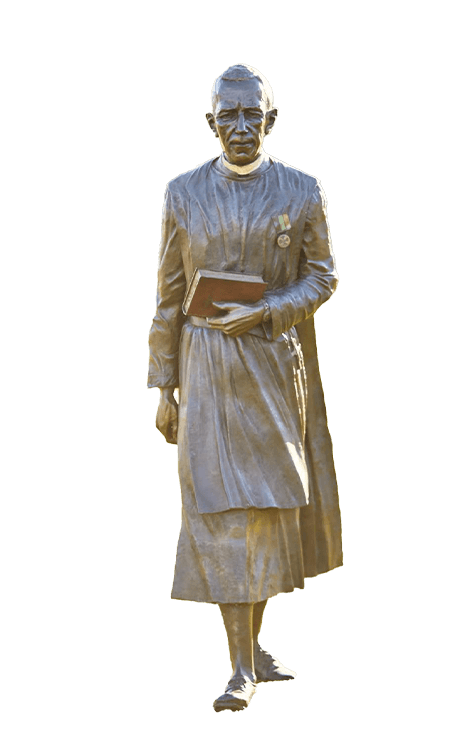


"No nation has the right to make decisions for another nation; no people for another people."
Nyerere in ‘A Peaceful New Year’ speech. Tanzania, January 1968
Julius Nyerere
1922 - 1999
Founding Father of Tanzania (1964), Revolutionary, Pan-Africanist, First Prime Minister and president of Tanzania (1961—1985), Chair of the Frontline States
Julius Mwalimu (Teacher) Nyerere led his own people to independence in 1964 and earned worldwide respect for his Pan-African vision to unite all newly independent African governments under a call for self-reliance and freedom from colonial rule. He is internationally recognised as one of the founders of the Organization of African Unity (now the African Union), established in 1963 to promote peace and solidarity among African states.
Nyerere co-founded the Frontline States, a coalition of African states that provided support for the struggle for Black majority rule in South Africa. His country became a second home to a number of African liberation movements, including South Africas Pan Africanist Congress (PAC) and the ANC.
The ANC set up its first office in exile in Tanganyika following the Sharpeville Massacre in 1960, a year before it became independent Tanzania. In his autobiography The Long Walk to Freedom, first democratic president Nelson Mandela recounts the feeling of arriving in the newly independent country and realising he was in a country ruled by Africans. For the first time in my life, I was a free man, he wrote. I felt the burden of oppression lifting from my shoulders.
Did You Know?
In 2005 Pope Benedict XVI declared Nyerere the Servant of God, the first step of three needed for him to become a saint. In June 2017 media reports said step two, beatification by Pope St Francis, could be possible in the same year, leading to the final step, Nyereres canonization into sainthood.

